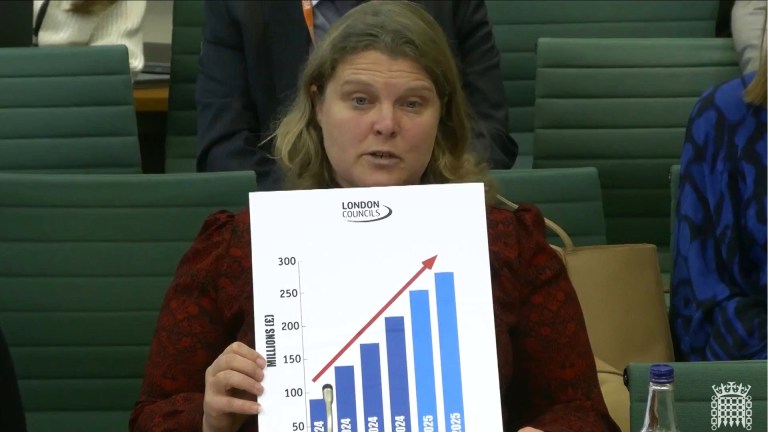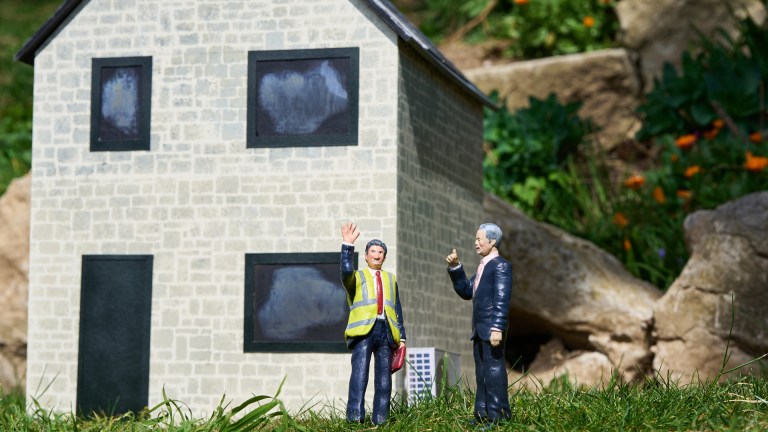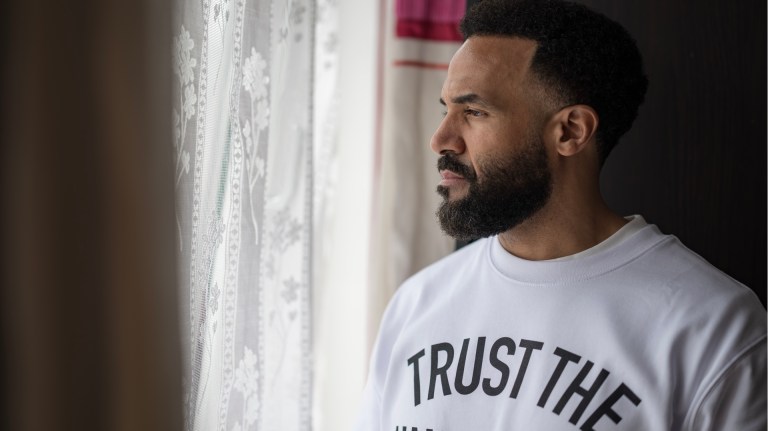In a 2014 report surveying the ex-forces community, the Legion reported that the number of veterans living on the streets in London has plummeted since the 1990s when figures indicated that 20% of the homeless population were ex-services at the time. A 2008 study found that the proportion had dropped to 6%.
The most recent rough sleeping figures for London, the Combined Homelessness and Information Network (Chain), found 5% of the people counted on the streets of the English capital had an armed forces background.
But the government’s rough sleeping strategy, published in September 2022, revealed 6% of UK nationals who were street homeless served in the armed forces, according to the government’s national questionnaire on the subject.
According to Lee Buss-Blair, the director of operations at supported housing provider Riverside, this was the first rise in years and sparked “concerns that there are still considerable gaps” when it comes to ensuring all veterans are supported.
The London-only rough sleeping count, the Combined Homelessness and Information Network (Chain), tracks how many people with a history in the armed forces were spotted on the streets of the English capital. It’s considered one of the most accurate rough sleeping counts in the UK and one of the few measures of
The proportion of rough sleepers who are veterans has remained at around 5% over the past year. The most recent quarterly Chain figures showed 136 people with an armed forces history were sleeping rough in London between July and September 2023.
Advertising helps fund Big Issue’s mission to end poverty
That’s only a slight increase on the previous year but far in excess of the 97 veterans counted between April and June.
While the narrative of British veterans being left on the streets is popular with some quarters of the far-right, the Chain figures show that most veterans on London’s streets originated from outside the UK. Between July and September 2023, 44 British veterans were spotted on London’s streets compared to 92 people with a history in the armed forces outside the UK.
The government has committed to ending rough sleeping by 2024 – a target experts believe ministers will miss.
The Westminster strategy to achieve that goal specifically mentions veterans. It speaks about waiving a local connection to areas for veterans asking local authorities for help – a common issue for veterans who may move around the UK or have been away serving.
“It’s the first time there have been specific actions towards ending veteran homelessness,” said Buss-Blair.
“Having a viable route off the street is key. Ending veteran homelessness is eminently achievable.”
Advertising helps fund Big Issue’s mission to end poverty
Get the latest news and insight into how the Big Issue magazine is made by signing up for the Inside Big Issue newsletter
Veterans minister Johnny Mercer has promised to end veteran rough sleeping by the end of 2023. He told LBC in February: “There should not be any veterans involuntarily sleeping rough in this country by the end of this year, and you can hold me to that!”
Mercer added that the situation was “manageable” and Op Fortitude, a new pathway for veteran homeless support backed by £8.5million in government funding over two years, would achieve that goal.
Op Fortitude launched in July offering a hotline for veterans at risk of homelessness. In its first week, 150 veterans called the Op Fortitude hotline, which is more than 10% of the volume of calls it expected to receive over the entire first year.
Mercer has also been in charge of the eviction of Afghan families, including interpreters and ex-services personnel who worked with the government and British Army in Afghanistan, from hotels where they have been staying since fleeing the Taliban in 2021.
He has personally vowed to investigate any reports of families who end up rough sleeping as a result of being moved out of hotels. But councils tasked with finding new places for them to live have warned that some may end up rough sleeping, which risks undermining Mercer’s promise to end veteran rough sleeping for good.
Advertising helps fund Big Issue’s mission to end poverty
The UK government also announced £33m worth of support for veterans at the Spring Statement, including £20m to build and refurbish homes for homeless veterans. Buss-Blair described that funding as a “welcome surprise”.
However, Dr Hugh Milroy, the chief executive of charity Veterans Aid said veterans needed more support with poverty, not housing.
“Street homeless veteran numbers are small and have been so for some years,” said Dr Milroy. “As an organisation at the heart of the issue, no one has consulted with us about the need. We have watched contraction in provision of bed spaces and units of veteran specific accommodation and it hasn’t had an impact on our operations.”
How many veterans are there in the UK?
Ministry of Defence estimates that there are around two million veterans in the UK. The figures show that over the next 10 years, the number of veterans in Great Britain is expected to decrease by around one million, to approximately 1.6 million by 2028.
In recent years, veterans have traditionally made up around 5% of the wider population and the proportion of rough sleepers with an armed forces background has matched the same rate so they have not been disproportionately represented on the streets.
We’re calling on the Prime Minister to make sure everyone can afford to stay in their homes and pay for the essentials by:
Advertising helps fund Big Issue’s mission to end poverty
- Unfreezing Local Housing Allowance rates
- Increasing Universal Credit to £120 a week for a single adult and £200 for a couple
Will you add your voice to our call and sign the petition?
Why are veterans homeless in the UK?
According to Sir Andrew Gregory, chief executive of forces charity SSAFA, the issues facing veterans often stem from difficulties in adapting to civilian life after years spent with a regimented lifestyle where many day-to-day tasks are already taken care of. This can then result in the “eight Ds”: drink, debt, drugs, divorce, depression, domestic violence, dependency culture, and digs, meaning accommodation.
Failing to get a handle on these issues can end in homelessness and that is why SSAFA urges veterans to come forward early for support.
“So often, the challenges facing the people we help start from something simple,” Sir Andrew told The Big Issue.
“Perhaps something like having come out of the armed forces, they don’t budget very well and they get into debt, they default on the rent, they lose their accommodation, they then find they’ve lost the job, then the relationship breaks down, then that leads to mental issues that perhaps they’ve had come to the fore, and suddenly we find ourselves picking them up.”
Advertising helps fund Big Issue’s mission to end poverty
Accessing housing remains a problem as does ensuring local authorities are able to cater veterans’ specific needs.
Veteran housing charity Stoll, along with Homeless Link and the National Housing Federation, launched a No Homeless Veterans toolkit earlier this year to help councils and housing providers self-audit to find ways to improve and share best practice.
It’s hoped that the toolkit can make the difference in ensuring veterans are better understood and councils are better equipped to help them.
“Veterans are very much a close-knit community,” said Richard Gammage, the chief executive of Stoll.
“They tend to not want to ask for help and when they do ask for help they tend not to always be certain who to ask. When they do ask, they kind of want to have somebody on the other end who understands what it is to be a veteran or the particular challenges they face.”
Riverside’s Buss-Blair told The Big Issue dedicated veteran-specific services can make it more likely for some veterans to seek support. “Good quality mainstream homeless services work just as effectively with veterans as with anyone else, but the more time I’ve spent with veterans, the more I’ve heard the same story in relation to veterans waiting far longer to ask for help than most people, and being really reluctant to engage with mainstream services.”
Advertising helps fund Big Issue’s mission to end poverty
Your support changes lives. Find out how you can help us help more people by signing up for a subscription
Which charities are helping homeless veterans?
The Armed Forces Covenant is signed by various charities and businesses to ensure that veterans are well looked after in the UK.
It’s a promise by the nation ensuring that those who serve or who have served in the armed forces, and their families, are treated fairly.
There are plenty of charities working to prevent veterans from falling into homelessness and to support ex-servicepeople who have lost their home.
National charities like Stoll, SSAFA, Soldiers off the Street and the Royal British Legion help veterans who need support.
Veterans Aid, Help 4 Homeless Veterans and Veterans in Need also work to provide vital help and there are plenty more local grassroots efforts across the UK.
Advertising helps fund Big Issue’s mission to end poverty
However, the cost of living crisis means that many will be facing tough times ahead, according to Stoll chief executive Gammage.
“There’s plenty of resource stuck behind supporting veterans, whether it’s in the charity sector or nationally, but the reality is there are some who are falling through the cracks,” said Gammage.
“My sense, from talking to colleagues in other veterans supported provision, is that some of the services that are offered are really at risk. They’re really, really seriously at risk. You can’t have your cost base going up on utilities to the expense it is, even with the government support, you just can’t manage that and continue to deliver the same services.”
Do you have a story to tell or opinions to share about this? We want to hear from you. Get in touch and tell us more.










